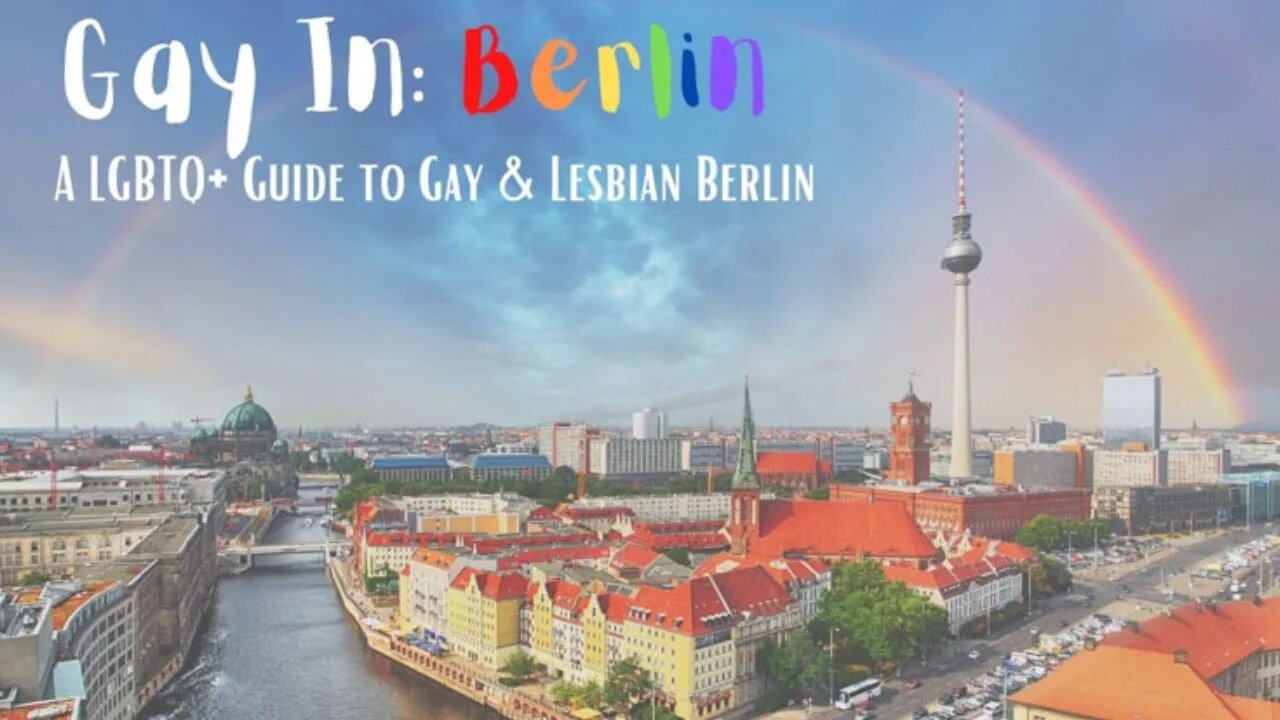Premium Only Content

Discover the Surprising LGBTQ Rights in Germany! #shorts #travelvlog
Introduction
Berlin, the capital of Germany, has long been known for its tolerant and progressive stance towards people of different sexual orientations and gender identities. Over the years, the city has witnessed significant strides in promoting LGBTQ rights, with a range of policies, campaigns, and initiatives aimed at creating a more inclusive and accepting environment for the LGBTQ community. This report aims to provide a detailed overview of the social and legal strides made for the acceptance and rights of the LGBTQ community in Berlin, Germany.
Historical Overview of LGBTQ Rights in Germany
The history of LGBTQ rights in Germany dates back to the early 20th century when activists like Magnus Hirschfeld worked towards promoting tolerance and acceptance of homosexuality. However, the Nazi regime in the 1930s launched a brutal crackdown on the LGBTQ community, resulting in the persecution, imprisonment, and murder of thousands of individuals. It was not until the 1960s that the gay rights movement began to gain momentum, with the first gay rights organization, Homosexuelle Aktion Westberlin, founded in 1969.
In the following decades, Germany witnessed a series of milestones in the fight for LGBTQ rights. In 2001, Germany became the first country in the world to legally recognize same-sex partnerships, which granted same-sex couples many of the same rights as married heterosexual couples. In 2002, the country passed an anti-discrimination law that made it illegal to discriminate against someone based on their sexual orientation or gender identity.
Social Attitudes towards LGBTQ Individuals
Berlin is considered one of the most LGBTQ-friendly cities in the world, with a vibrant LGBTQ community and a range of initiatives aimed at promoting acceptance and equality. One of the most significant initiatives is the annual Christopher Street Day (CSD) parade, first held in 1979, which celebrates LGBTQ rights and features a colorful procession of floats, music, and dancing.
Numerous advocacy organizations, events, and support groups are working towards promoting the rights and well-being of the LGBTQ community in Berlin. These include LGBTIQ Refugees Berlin, which provides support and assistance to refugees fleeing persecution based on their sexual orientation or gender identity, and Queer Amnesty Berlin, which campaigns for the rights of LGBTQ individuals globally.
A recent survey conducted by the Berlin State Office for Equal Treatment and Against Discrimination found that the majority of Berliners (78%) did not have any issue with LGBTQ people, while only 7% expressed negative attitudes.
Legal and Policy Framework for LGBTQ Rights
Germany's legal and policy framework for LGBTQ rights is among the most progressive in the world, with a range of laws and initiatives aimed at promoting equality and non-discrimination.
Germany's anti-discrimination law prohibits discrimination on the basis of sexual orientation and gender identity in employment, education, housing, and other areas. Transgender individuals are entitled to change their legal gender without undergoing surgery or sterilization, and the government provides financial assistance to transgender individuals seeking gender reassignment surgery.
In terms of healthcare, LGBTQ individuals are entitled to receive the same level of care as heterosexual individuals, and healthcare providers are required to respect an individual's gender identity and sexual orientation. Additionally, the country's education system includes comprehensive sex education that covers a range of topics, including sexual orientation and gender identity.
Challenges and Areas for Improvement
Despite the significant strides made in promoting LGBTQ rights in Berlin, challenges and areas for improvement remain. Transgender individuals still face significant challenges, including social stigma, discrimination, and lack of access to gender-affirming healthcare. There is also a need for more inclusive policies and programs aimed at promoting the well-being of LGBTQ refugees and migrants.
Conclusion
Berlin has come a long way in promoting LGBTQ rights, with a host of social and legal initiatives aimed at promoting tolerance and equality. While challenges remain, the city's progressive stance towards LGBTQ rights provides a beacon of hope and inspiration, serving as a model for other cities and countries seeking to promote a more inclusive and accepting society.
-
 LIVE
LIVE
Dear America
2 hours agoRepeat Offender Kills a Woman on a train!! WHY IS MSM SILENT!? + Are We Attacking Cartels??
2,716 watching -
 LIVE
LIVE
Badlands Media
9 hours agoBadlands Daily: Sept. 8, 2025
3,734 watching -
 LIVE
LIVE
Total Horse Channel
13 hours ago2025 Reno Snaffle Bit Futurity | Monday
24 watching -
 LIVE
LIVE
Matt Kohrs
13 hours agoNew Highs Incoming?! 🚨🚨🚨 Live Trading Futures & Options
642 watching -
 LIVE
LIVE
Wendy Bell Radio
5 hours agoALL THE NEWS THAT'S FIT TO IGNORE
7,613 watching -
 43:26
43:26
MTNTOUGH Podcast w/ Dustin Diefenderfer
8 hours agoRiley Gaines: NCAA Champion's Bold Fight for Fairness and Faith | MTNPOD #132
4.87K1 -
 13:42
13:42
Chad Prather
2 hours agoHolding On When There’s Nowhere Else to Go
4.63K4 -
 LIVE
LIVE
LFA TV
12 hours agoLFA TV ALL DAY STREAM - MONDAY 9/8/25
4,075 watching -
 LIVE
LIVE
GritsGG
2 hours agoWin Streaking! Most Wins in THE WORLD!🫡
81 watching -
 17:52
17:52
Professor Nez
22 hours ago🚨Trump Drops JAW-DROPPING Find with Tulsi Gabbard! 👀
11.8K15